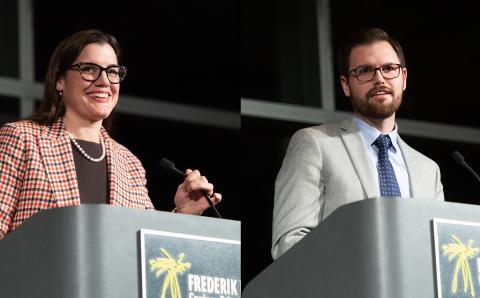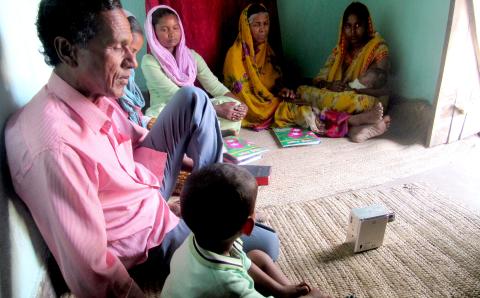Will your church be commemorating the 400th anniversary of the Canons of Dort? For some, the answer might be “Why would we want to do that?” Others might respond with an enthusiastic “yes,” perhaps eagerly anticipating an exposition of TULIP (total depravity, unconditional election, limited atonement, irresistible grace, and preservation of the saints).
The Canons have a mixed reputation, and because many of us haven’t read them, that’s how we know them—by reputation.
It doesn’t help that they deal with the doctrine of election, a topic we often prefer to avoid. The Canons remind us that sin’s effects run so deep that, left to ourselves, we could not possibly turn to Christ. But this reminder points us to the sheer grace of salvation. Only by the gift and work of the Holy Spirit are we set free to respond in faith to Christ and his saving work. We could never deserve this, and we could never muster up saving faith by ourselves. The Canons make clear that from eternity past to eternity future, salvation is entirely by God’s grace. This is foundational to our Reformed understanding of how God relates to us and we to God.
The Canons teach that not all will receive the gift of saving faith, but they speak of this with caution and restraint. In particular, we must never make assumptions about who might not be saved. Dispelling the myth that Calvinism dampens evangelism, the Canons strongly encourage us to proclaim Christ indiscriminately to everyone. Who knows whether the Spirit will lead someone to faith through our testimony? Even so, the writers of the Canons realize that this can be a troubling doctrine, so they offer considerable pastoral comfort, including for those going through times of doubt or even apparent loss of faith.
That said, because the main task of the Canons is to refute opposing views, the tone is sometimes harsh. It helps to explain this (if not excuse it) when we remember that disputes about election played a role in bringing the Netherlands to the brink of civil war in the years before the Synod of Dort.
Context also helps us understand the structure and purpose of the Canons. For example, have you ever wondered why they include five points of doctrine? It’s because they respond to five issues raised by the Arminians. This means we should never imply that the Canons are a summary of Reformed theology as a whole. The framers of the Canons would direct us to the Belgic Confession for that! The Canons simply clarify five disputed points about one doctrine.
We should also be rather wary of the memorable but flawed acronym TULIP. Just like the Canons, TULIP does not sum up all of Reformed theology. It doesn’t even say all that needs to be said about election! TULIP greatly oversimplifies the content of the Canons, and common misunderstandings of many of the terms—especially total depravity, limited atonement, and irresistible grace—distort what the Canons actually teach. Without explaining at length what TULIP does not mean, it can do more harm than good.
So, yes, let’s commemorate the Canons. But let’s do so in a way that properly respects their content and intent. Let’s actually read them rather than just reciting TULIP. And let’s recognize them for what they are: not a summary of Reformed theology, or even a full account of election, but a crucial clarification of some key issues that matter as much now as they did 400 years ago.
Discussion Questions
- What kind of “reputation,” in your mind, do the Canons of Dort have? For what reasons do you think this confession has such a reputation?
- How does the Canons’ assertion that salvation is entirely by God’s grace give you comfort and assurance?
- How does the doctrine of God’s election motivate us to evangelism?
- How does recognizing the Canons’ limitations—for example, that its five points are not meant as a complete summary of the doctrine of election—help you better understand and appreciate its teachings?
About the Author
Suzanne McDonald is ordained in the Christian Reformed Church and is professor of Systematic and Historical Theology at Western Theological Seminary in Holland, Mich.






